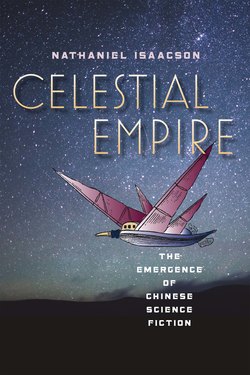Читать книгу Celestial Empire - Nathaniel Isaacson - Страница 6
ОглавлениеACKNOWLEDGMENTS
When I first began research for this project as a PhD student at UCLA, I was under the impression that I would be able to cover the entire twentieth century and that the paucity of available materials would mean that the decisions about what to include and what to exclude had already been made for me. As I neared completion of the dissertation, my adviser confessed to me that when I had originally proposed the project, he had thought it was not feasible at all. I am eternally grateful to him for having the patience and wisdom to let me find out the answer to this question on my own. In the intervening years, I think that it is safe to say that both of us have been proven wrong. Chinese science fiction has emerged as a field in its own right, with scholars producing research and translation at a breakneck pace. This research continues to expand the field of Chinese science fiction, examining its relationship to China’s own literary canon and to science fiction as a global phenomenon.
I would like to thank North Carolina State University and UCLA for supporting this research from its earliest stages up through publication. Travel and research funding from North Carolina State University, which allowed me to conduct research at libraries in Beijing and Shanghai, and a dissertation-year fellowship from UCLA and a Distinguished Teaching Assistant fellowship were especially helpful. I owe special debts to Theodore Huters, David Schaberg, Jack Chen, Shu-mei Shih, Andrea Goldman, and Robert Chi for their mentorship during my PhD studies. I also owe a great debt to Paola Iovene for her careful review of my dissertation, which played a significant role in the revisions that went into this manuscript. I am grateful to Carlos Rojas, Andrea Bachner, Chris Hamm, and Eileen Chow for their mentorship and support, especially in presenting and revising various versions of chapter 5 at Duke University for the Oxford Handbook of Modern Chinese Literature and for the Triangle East Asia Colloquium. Song Mingwei and Wu Yan have also been particularly crucial mentors in guiding me through the field of Chinese science fiction. Jennifer Feeley, Sarah Wells, and all the panelists at the 2011 “Visions of the Future: Global Science Fiction Cinema” conference in Iowa City, Iowa, were instrumental in convincing me that truly interdisciplinary work was worth the toil. I am also grateful for the support and encouragement of my graduate cohort at UCLA: David Hull, Maura Dykstra, CedarBough T. Saeji, Brian Bernards, Jennifer T. Johnson, Matthew Cochran, Aynne Kokas, Winnie Chang, Hanmo Chang, Ma Lujing, and Makiko Mori. In China, I would also like thank Li Guangyi, Ren Dongmei, and Jia Liyuan for their guidance and support.
I would also like to express my sincerest appreciation to the reviewers of my articles and book manuscript. Thanks are also due to Arthur Evans, Parker Smathers, and the rest of the staff at Wesleyan University Press for their guidance, expertise, and support through the process of writing and revision.
Finally, I would like to express my gratitude to my wonderful and supportive wife, Kaori Isaacson, and our two children, Kenzo and Karina, for their patience during the past years. My father and mother, Ken and Martha Isaacson, my brother and sister, Tyler and Natasha, continue to be an inspiration as well. This book is dedicated to them.
